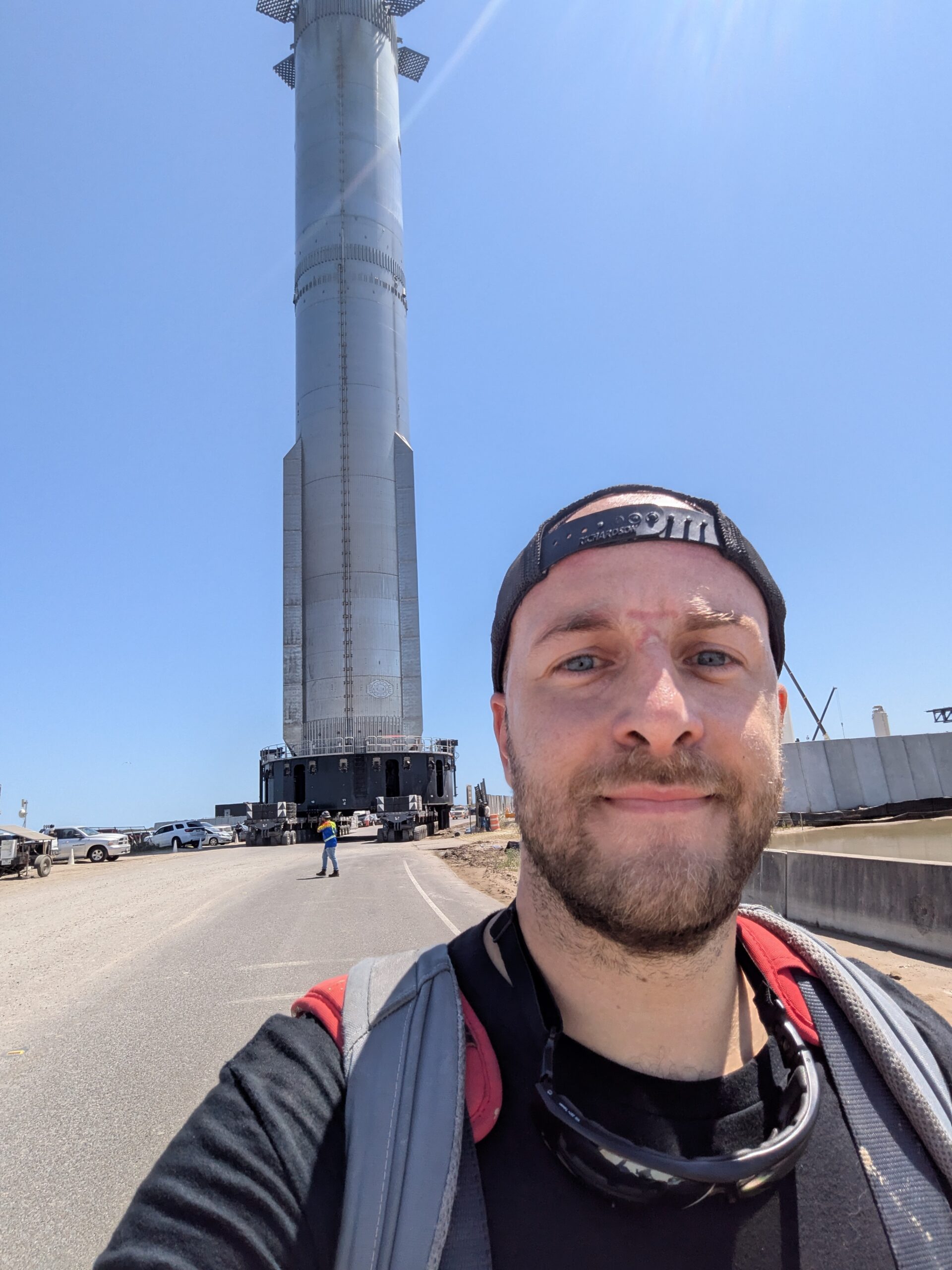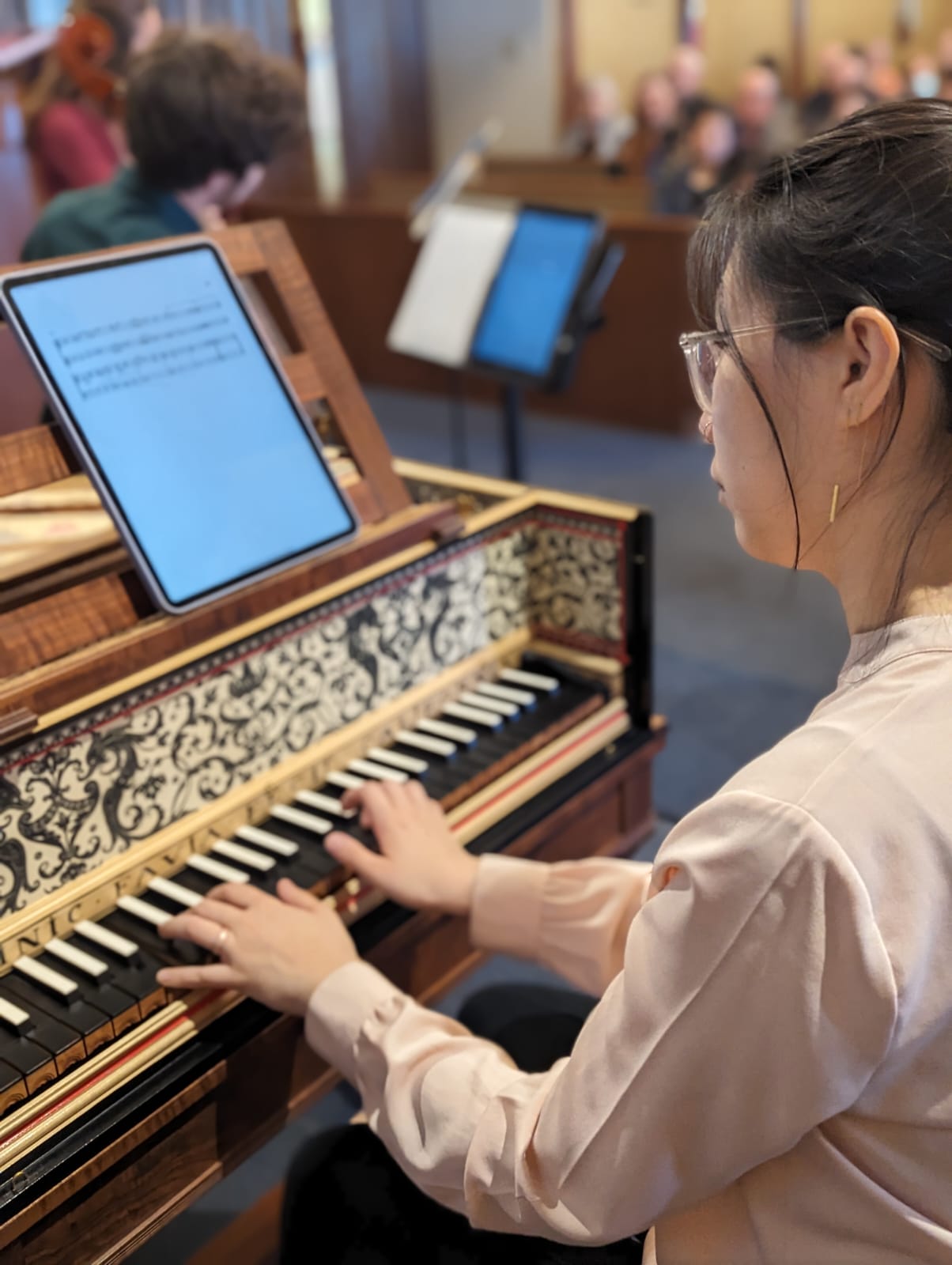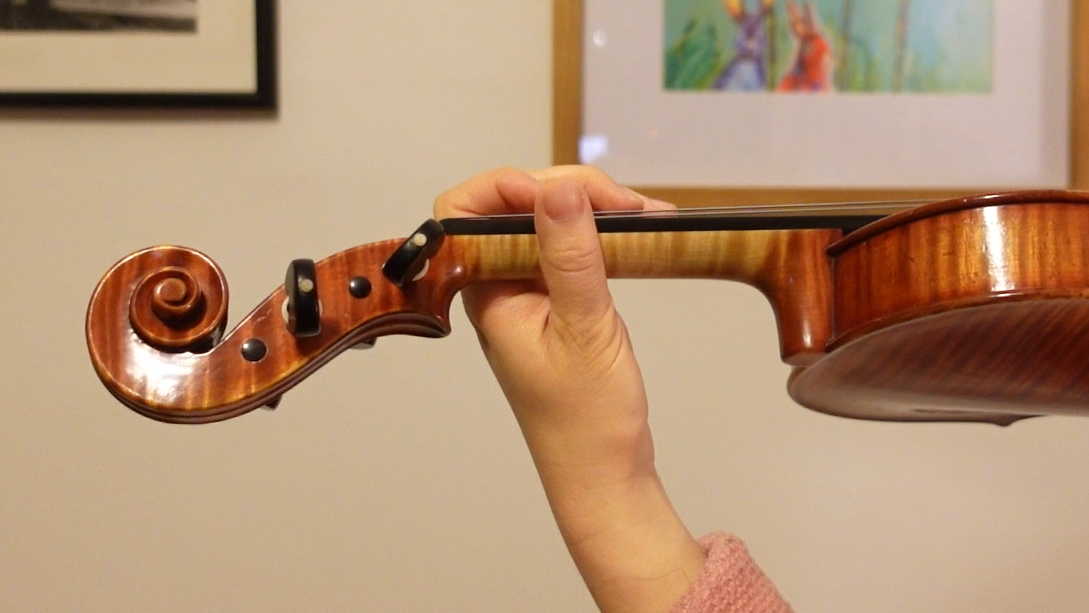An interview with Minnesota Orchestra cellist Sonia Mantell
With discipline, talent, and passion for orchestral music, 32-year-old cellist Sonia Mantell has already reached several impressive career milestones. She spent two seasons with the Lyric Opera of Chicago, has subbed with the Chicago Symphony Orchestra, and now holds a tenured position as a section cellist with the Minnesota Orchestra. Reflecting on her journey, she credits much of her success to her musician parents, who instilled in her a strong work ethic and the importance of kindness.
Sonia and I attended graduate school together and were neighbors for a few years in Chicago. During that time, I saw firsthand the dedication and perseverance she poured into preparing for orchestra auditions. Beyond her musical acheivements, I was always struck by her creativity, artistic style, sense of humor, and warm personality.
I was eager to interview Sonia to learn more about what she loves about orchestra, and what inspired her to follow this career path. What I didn’t anticipate was how much our conversation would center on the profound influence of her parents. It became clear that they not only encouraged her to practice hard and dream big, but also led by example through their steady hustle as freelance musicians. Sonia also shares how she bonds with her orchestra colleagues, some of her most inspiring musical experiences, and what she’s looking forward to this season.
Kiyoe: Would you like to describe yourself for people who haven’t met you yet?
Sonia: I’m a section cellist of the Minnesota Orchestra. I joined the ensemble in the Fall of 2020, and before Minnesota I was playing with Lyric Opera of Chicago for a couple of seasons. On top of my job in the Minnesota Orchestra, I love to play chamber music with my colleagues, and I love to play new music and contemporary music. I also teach at Birch Creek Summer Music Academy.
Kiyoe: You had a musical childhood; your father was, and your mother still is, a professional musician. What was that like, and how it was decided that you would play the cello?
Sonia: I was always inspired by my parents, just by watching them teach so much in my childhood home. My dad, who played viola, had his own studio in the house. My mom taught in the guest bedroom. And since the guest bedroom was right next to my bedroom, I got to hear her teach cello all the time.
Because I was observing my parents teach all the time, I realized that playing the violin or viola looked very uncomfortable to me as a young kid. And I think that’s honestly one of the reasons why I gravitated towards the cello, because to me, it just looked more natural to play. But of course, I love the fact that the cello is in the middle of the string family in terms of size. I just love the range of the cello; it can play both really, really high and really low. And I’ve always loved that it’s kind of the anchor for chamber music and for string quartets. I originally wanted to play the harp, but both my parents immediately said no because we were going to have to buy a new car for that.
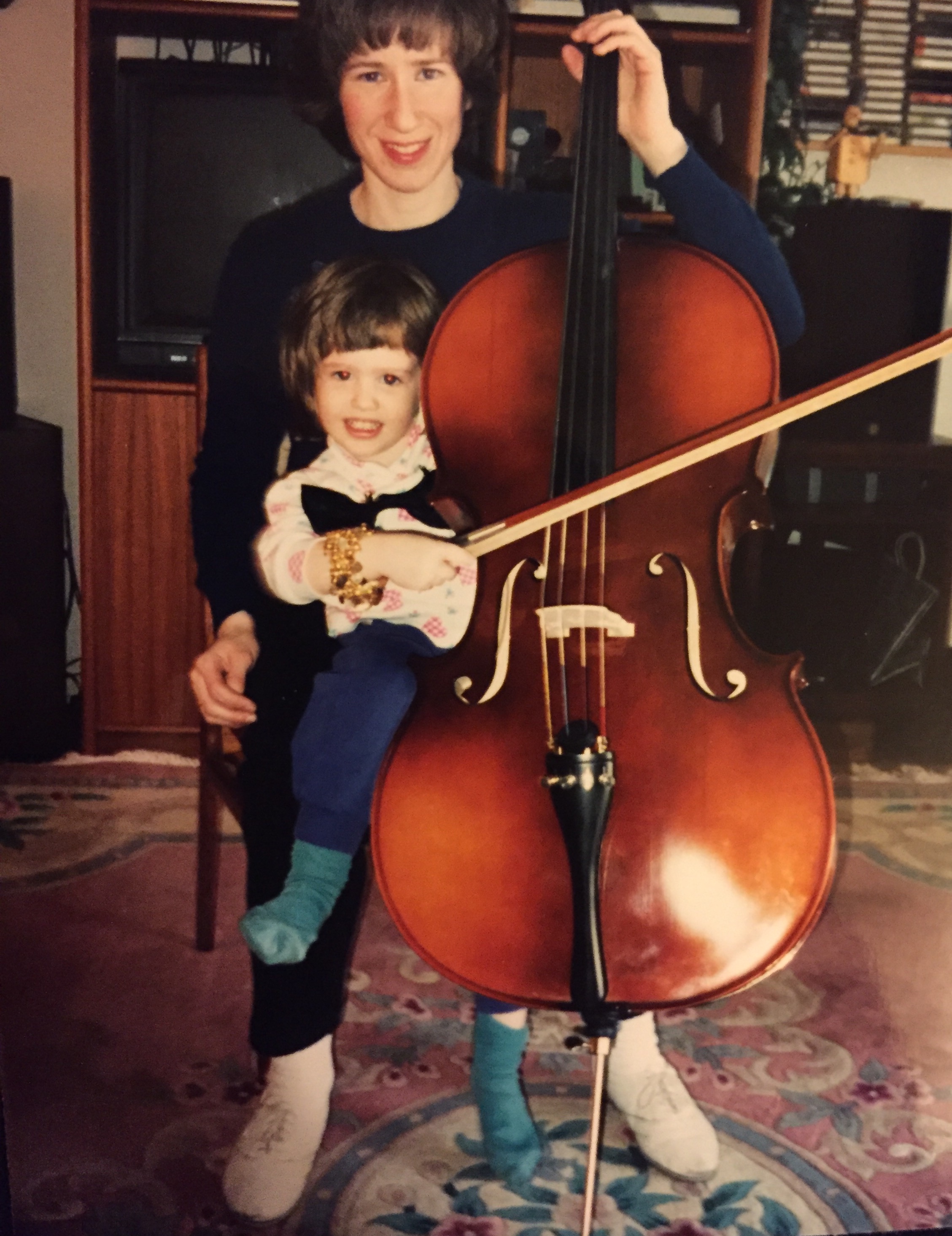
Kiyoe: Was your mom your first teacher?
Sonia: Yeah, I was with her for a couple of years. And then I went with one of her friends who she played with a lot in the freelance world, Mark Lekas. And then I went to Hans Jensen for my high school years.
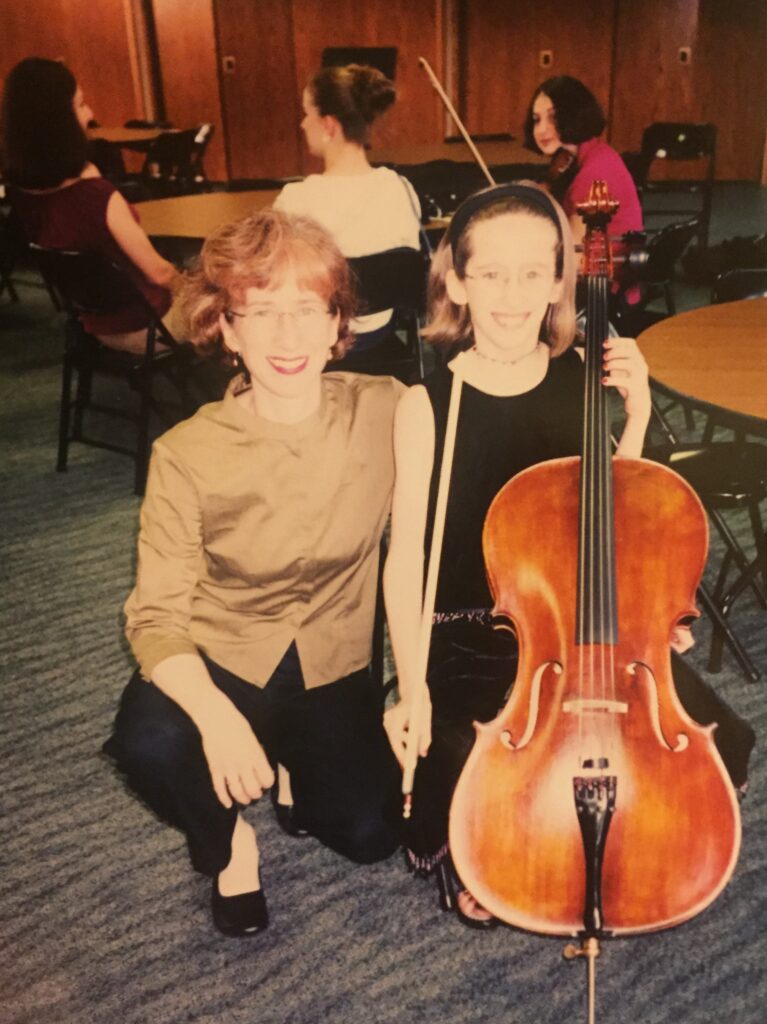
Kiyoe: When you were growing up, were there other careers that you considered? Or did you always know that you would become a professional musician?
Sonia: I was always into art, I love to draw. But for some reason, maybe I just didn’t know as a kid, that that could have been something that I could have like gone into seriously. Seeing my parents make a decent living being freelancers and teaching and juggling between so many regional orchestras that they were in, it just seemed like a no-brainer to follow that lifestyle. I thought they always sounded great.
Kiyoe: Was there a specific moment or a specific teacher that led you towards an orchestra career?
Sonia: I really think it was my parents who made me feel inspired to do the orchestral path. I so clearly saw that they took it so seriously. I would hear them practicing their orchestra rep and listening to all the repertoire to get ready for their concert cycles. They were both principals of Illinois Philharmonic Orchestra. My dad was principal of Elgin and, and co-principal for Chicago Sinfonietta. So I noticed how seriously they took it and how much they enjoyed it. I was inspired by that.
But, it was honestly the experience of being in Chicago Youth Symphony Orchestra that made me really want to do it professionally. It was when we did The Rite of Spring [by Igor Stravinsky]. That was the piece that made me realize, this is what I want to do for the rest of my life. Like, “I love this, it’s exciting!” I love the challenge that it brought, rhythmically and ensemble-wise. It just felt like so many pieces of a puzzle to fit together. The process of learning that piece as a young ensemble was really exciting and fulfilling. For some reason, Rite of Spring was kind of that “aha” moment for me.
Kiyoe: That sounds fun to play Rite of Spring as a high schooler with all your friends. I remember one of the things that kept me going to orchestra when I was younger was the social aspect; I wanted to keep going just to see my friends every week.
Sonia: That’s so true as well. For me, it kind of felt like I was like in a movie, because I lived in the suburbs, and we had to road trip with other people to downtown Chicago. We got to rehearse in this really awesome old building on Michigan Avenue, and we got to stay there for more than six hours of the day. It felt like I could like truly be myself with all the different nerds.
Kiyoe: Who have been some of your most important musical influences?
Sonia: I have to say my parents, to be honest. They both inspired me so much with their work ethic. As I got older, it just makes me so impressed that they were able to raise a kid while both being freelance musicians. I can’t imagine trying to save enough money for a kid to go to college right now. And just knowing that my parents already had me by my age that I am now… I was always so impressed by how hard they worked, but they always seemed so happy to do it. And so many of their students found them really inspiring, too.
They also taught me how to be an overall better person, because in order to make it in the freelance world, you always have to have your act together and be kind to others no matter what the situation is. So I think that also helped me get to where I am now.
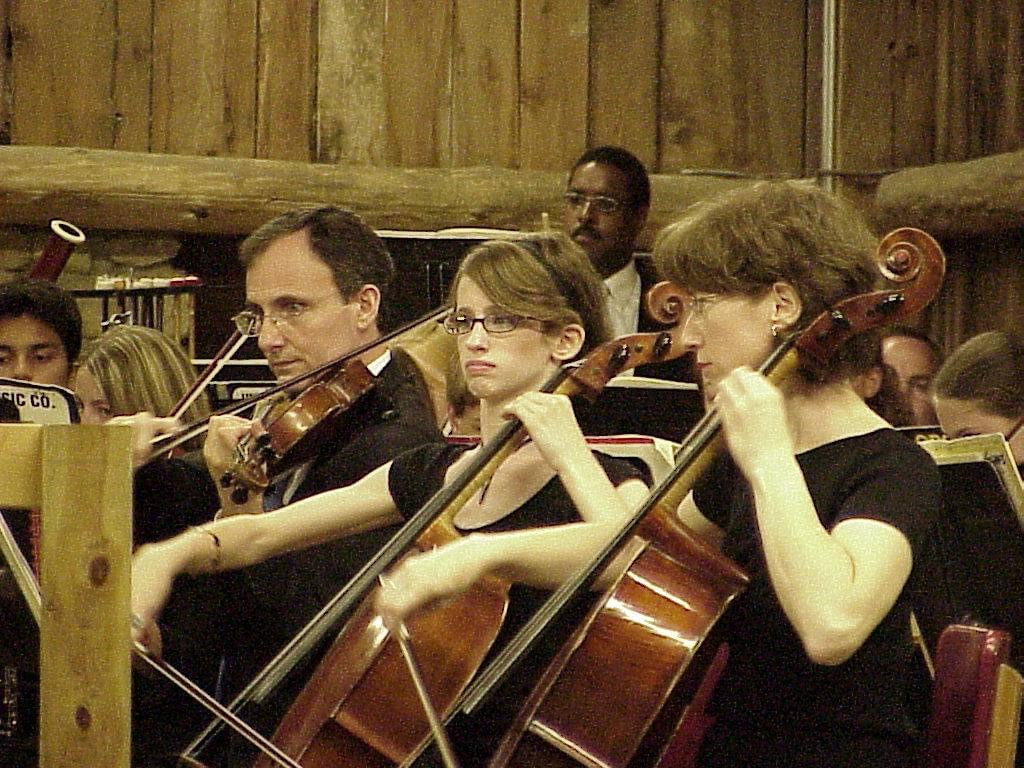
Kiyoe: Now you’re living the life that they were living.
Sonia: I distinctly remember my dad would tell me, “I want you to work really hard to get yourself into a top 10 orchestra, because I don’t want you to work as hard as we had to do all our lives.” He told me that so many times in high school and also in undergrad. And that helped me really want to push myself to do well in auditions because he wanted the best for me.
From an outside perspective, my dad loved to teach, and he loved playing in his ensembles, but he and my mom didn’t want me to have to hustle as hard as he did, which I get. Because, of course, it was exhausting, as well as fulfilling.
Kiyoe: It’s so amazing that you fulfilled his wish for you. They’re probably both so proud of you.
Sonia: Oh, yeah. I feel lucky.
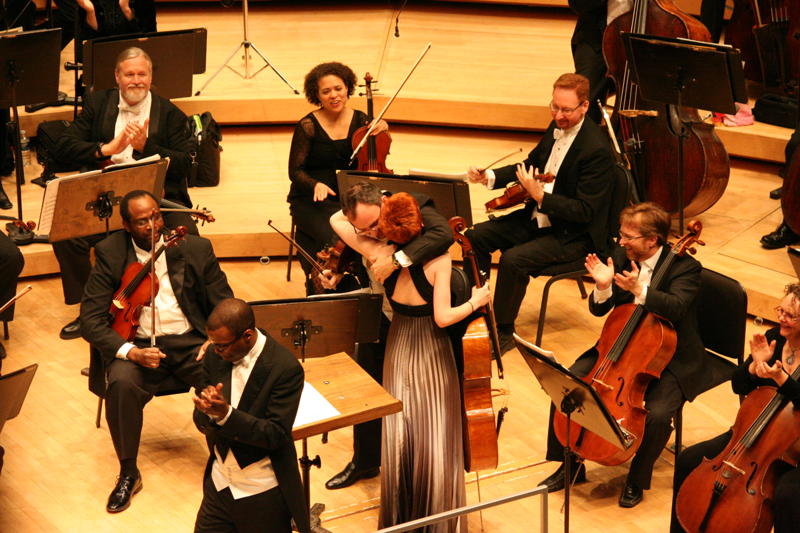
Kiyoe: I know you have a very healthy work-life balance. You have so many creative talents and a vibrant social life. Would like to share some of your interests and activities outside your orchestra job?
Sonia: Well, funny enough, this past Monday I played pickleball for a little bit with other orchestra musicians. It’s turned into like a weekly thing. It’s so funny. I try to do that as much as I can. I’m not good at it by any means, but it’s a nice thing to be super active physically with your orchestral friends.
But the thing that I love the most to do with my colleagues is watch movies. It’s my favorite thing in the world, to either host or organize movie viewing parties. We had a viewing party of David Lynch’s “Dune”, and it was just so much fun. It was so funny and just outrageous. That’s honestly my favorite thing to do, besides hosting parties. I really love watching films with big groups of people. I find it really, really enjoyable.
Also, a large group of us like to go bowling after concerts. That’s definitely been a thing.
Kiyoe: I’ve noticed you’re really good at creating community and gathering people together for random outings and parties.
Sonia: I like doing it. It just feels like I’m just adding a bunch of ingredients to a pot and just seeing what happens. I don’t know what the outcome will be.
Kiyoe: Would you say that doing these activities with your colleagues from the orchestra inspire your musicianship in any way?
Sonia: Oh, for sure. It definitely makes the experience of performing together feel that much easier and that much more intimate.
I just did a quartet performance with my really good friend, Alan Snow, and my housemate Sarah, who lives above me, and her sister, Lydia. And honestly, playing with those three was definitely one of the easiest chamber music quartet playing I’ve ever done. We were all playing a piece we’ve never played before, so we were learning a piece solely from scratch, but it was just very easy to have cohesive ideas and thoughts. And I think that also just came from hanging out together a lot, either one on one or at parties, and we’ve talked to each other for hours about stuff. And I think that goes hand in hand with making a chamber music experience that much easier and efficient.
Kiyoe: In your professional career, were there any pivotal moments that left a lasting impression on you?
Sonia: I think it was the first opera I did with Lyric opera, when I started subbing with them in 2018. It was when I subbed with them for Die Walküre. That was mind-blowing. That was definitely one of the most exciting performance experiences I’ve ever had. It was just so cool to rehearse the whole opera, and then rehearse with the singers, which added a completely new layer and meaning to everything.
The orchestration is so good on its own– and I know Wagner is completely canceled and is an awful person– but to me, the music is just really powerful. And then when you add the singers on top of such rich music, it makes it even better. On top of it, you add the lighting and the costuming and the awesome sets. And you hear the reactions of the audience. It really opened my eyes to the opera world.
I have to say the other life-changing experience, at least at Lyric Opera, was doing Elektra (by Richard Strauss). That felt like running a marathon because that opera is an hour and a half without intermission. From the get-go, you’re just going so fast. The music is so exhilarating, and I always felt like I had the zoomies after playing it. I always wanted to do something after those performances and needed at least a couple of hours to fully calm down; there’s no way I would have been able to fall asleep. I was so wired after doing that.
Kiyoe: Do you have any advice for people who are hoping to land an orchestra job like you have?
Sonia: You have to have a thick skin in order to keep taking auditions. I mean, there are people out there that can nail an audition at the first try. That’s always possible. But if you’re someone for whom that doesn’t work out, you have to be okay with just accepting failure with auditions, but using the auditions that don’t work out to help propel you to keep going.
Always ask for comments after auditions, even if you were really upset with how it went. It’s always worth it to hear back any feedback at all, no matter how the round went. And I would suggest that if your schedule is extremely busy while you’re doing auditions, use that as a challenge to practice as mindfully as you possibly can. So if you only end up having 20 minutes to practice all day, just use that 20 minutes to either focus on one to three excerpts tops, and just put all your mind and body into it.
That’ll give you comfort at the end of the day. Even though you didn’t have as much time as you wanted, at least you feel really good about one excerpt. You just have to be in a good mindset when you’re practicing.
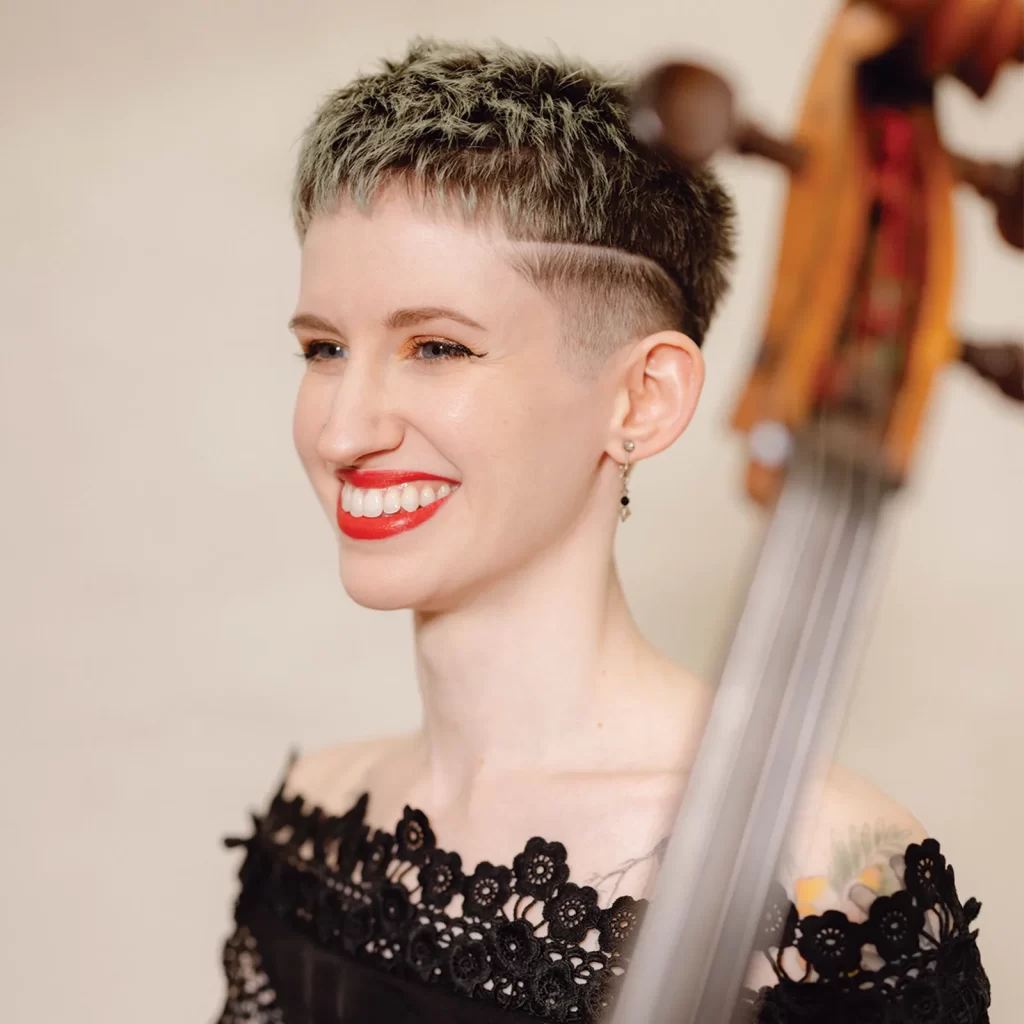
Kiyoe: What are some things you’re looking forward to, either musical or nonmusical?
Sonia: I’m going to be soloing with Minnesota Orchestra for my first time. It’s a short contemporary work for solo cello and string orchestra, and I’m excited because the composer is actually going to be conducting. I love that aspect of this whole experience. It’s very interesting because the title of the piece is called “Kiss On Wood”, and it’s referring to kissing the cross. The whole piece is based on Good Friday. There was a part of me that felt a little conflicted when I first found out I was going to be doing this piece, because as someone who did not grow up going to any church or temple, I was like, “oh, does this seem okay for me to be doing this?” But I watched some interviews of the composer, and he seems very open-minded.
He has a lot of interesting thoughts on religion in general, and faith. It made me feel more comfortable to be doing his piece because I was able to watch interviews of him talking about his relationship with his faith and how that intertwines and relates to composing. So I’m really looking forward to that. That’s in late March.
And then I’m just really excited because our new music director, Thomas Sondergard, is going to be conducting Puccini’s Turandot. This is going to be our first time doing an opera with him, and how he first started his conducting career was with opera. So I’m very excited about that.
If you live near Minneapolis, you can see Sonia solo with the Minnesota Orchestra March 28-29: get tickets here.
You can follow Sonia on Instagram @sonimonster
If you have any takeaways from Sonia’s interview, please leave a comment below. I’d love to hear from you!
And if you enjoy reading musician interviews, please check out some of my previous interviews:
- How Friendships and Passion Shape A Meaningful Life In Music
- How To Treat Violin-Related Pain and Injuries With Sotai
- How To Build A Nationally-Recognized Non-Profit Music Ensemble
Latest Posts From The Blog
How To Do a 180° Career Change As A Classical Musician
As a musician, I’ve had moments of wondering what life would be like to go through a career change. …
What It’s Like To Fulfill Your Parents’ Musical Dreams
With discipline, talent, and passion for orchestral music, 32-year-old cellist Sonia Mantell has alr…
How To Treat Violin-Related Pain and Injuries With Sotai
For violinists who have struggled with playing-related pain despite trying countless remedies, a Jap…
How To Build A Nationally-Recognized Non-Profit Music Ensemble
Starting a non-profit music ensemble is a dream shared by many musicians, but turning that dream int…
How Friendships and Passion Shape A Meaningful Life In Music
Have you ever reflected on the values that guide your career as a musician? Pianist, harpsichordist,…
How To Overcome Left-hand Pain While Playing Violin
Left-hand and arm pain while playing violin is a common challenge for students. As a violin teacher,…
